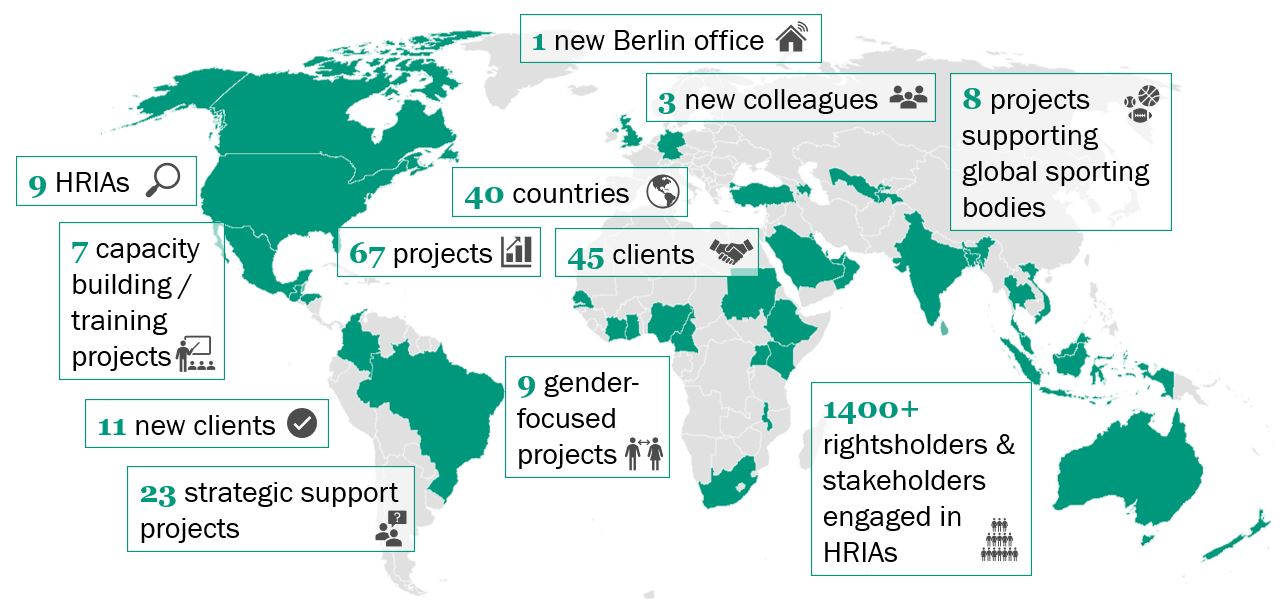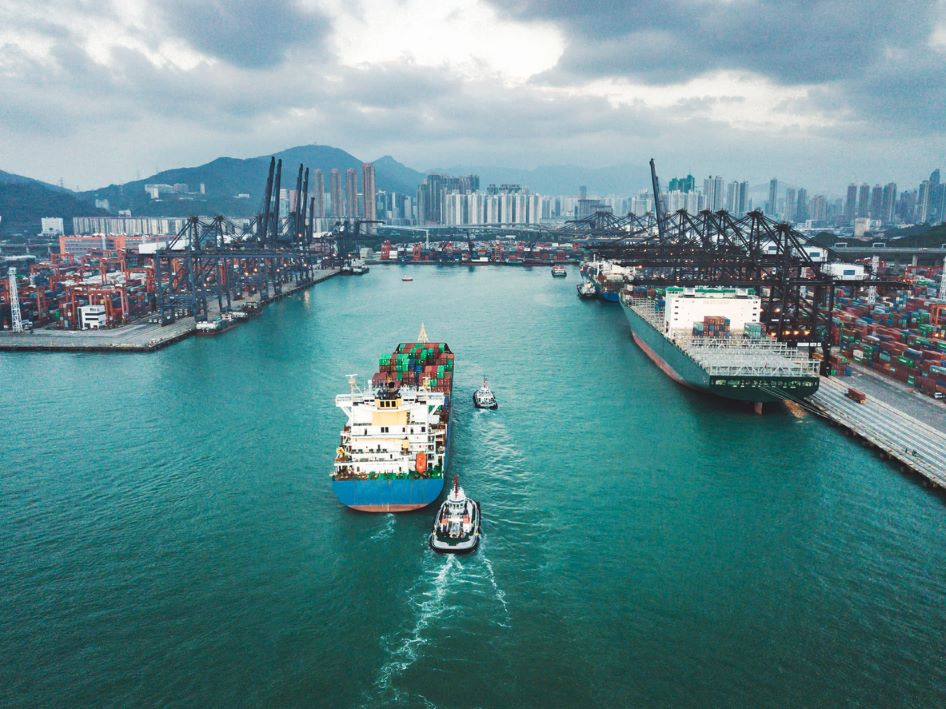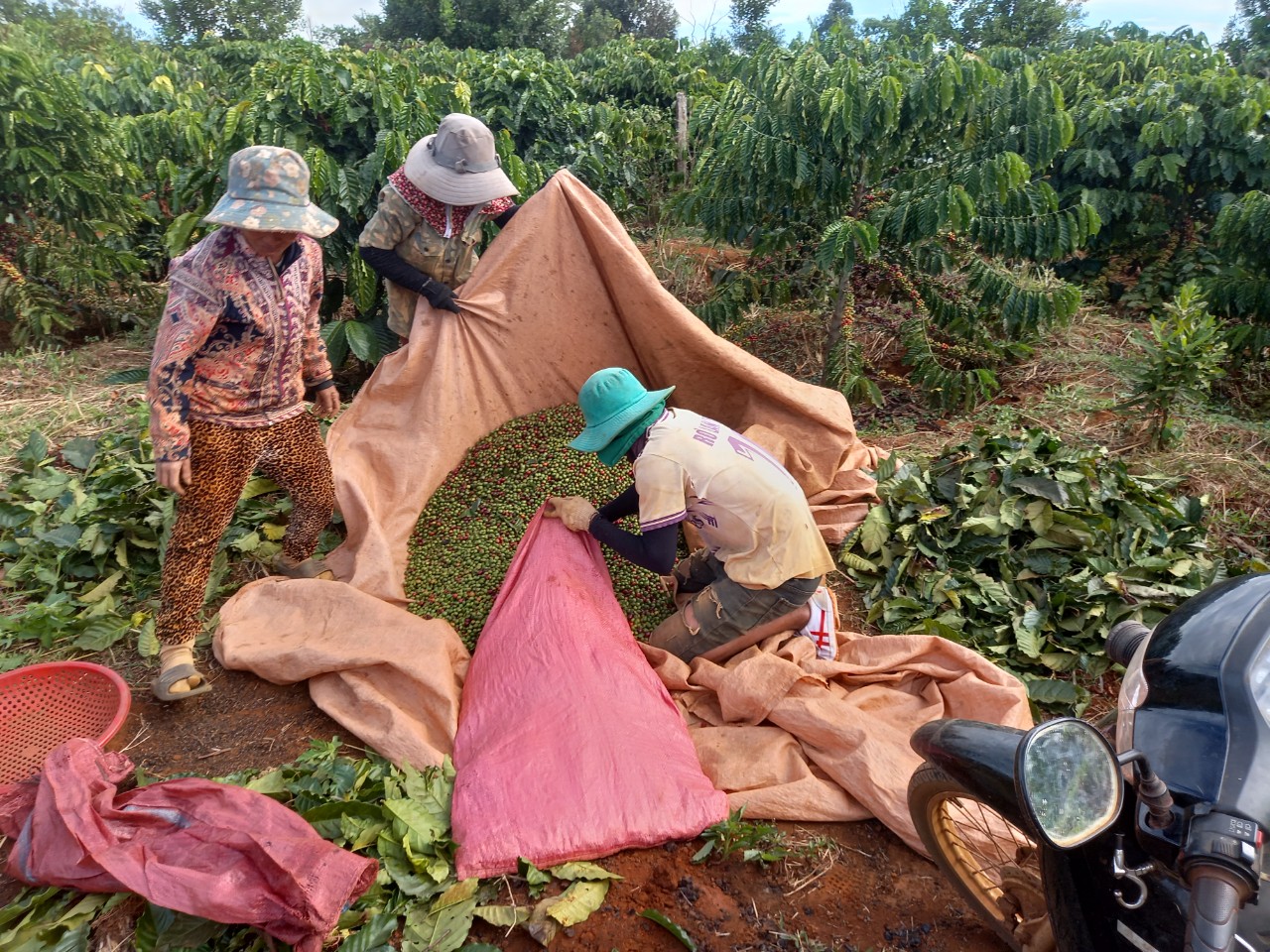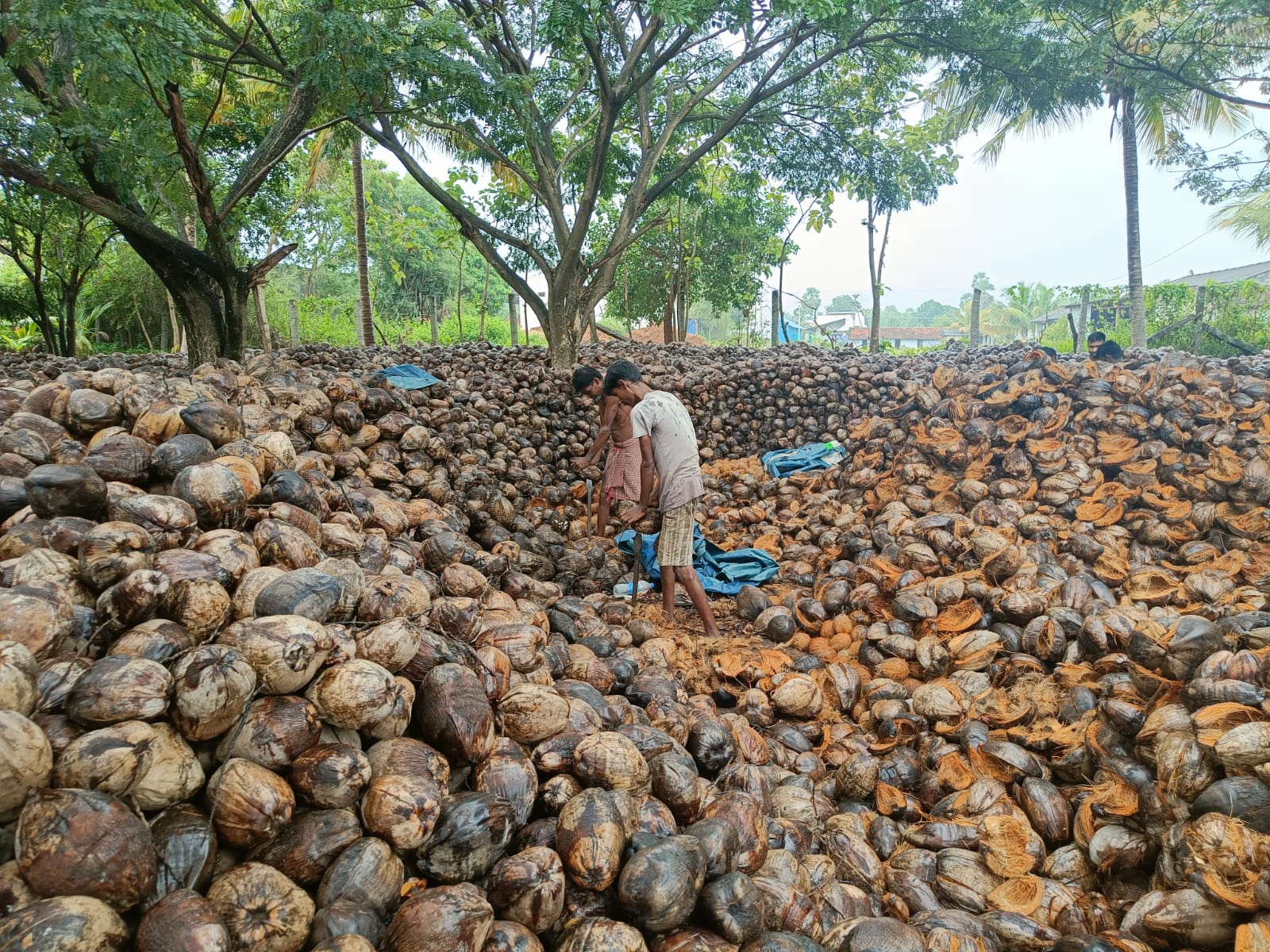Ergon Update -December 2023
Posted by Ergon Update -December 2023

As 2023 draws to a close, we’d like to take this opportunity to thank our clients, partners and staff for another busy and exciting year at Ergon. We continued to work on a range of interesting and challenging projects for leading companies, investors, public institutions, sports bodies, certification bodies and multi-stakeholder initiatives.
This newsletter provides a snapshot of our year along with some examples of how we have supported our diverse range of clients with human rights, gender and labour related challenges.
Responding to client challenges in 2023
Client challenge: a new and complex regulatory landscape on human rights for businesses and financial institutions
The proliferation of an increasingly complicated regulatory landscape on human rights and supply chains is forcing many of our corporate and investor clients to develop more robust human rights strategies. These are needed for organisations to be ready for stricter requirements and increasing scrutiny from civil society and governments. However, knowing where to start is a challenge as it’s easy to get lost in the maze of supply chain, due diligence and reporting laws.
Our approach: making practical sense of legal requirements, building capacity and designing fit for purpose systems
Many of the businesses and DFIs that we work with are looking to develop approaches to support effective due diligence and reporting across their operations and supply chains.
In 2023, we helped our corporate clients navigate this uncertainty by carrying out gap analyses, benchmarking exercises, human rights impact assessments (HRIA) and ambition workshops. This support has designed future-proof processes that make sense for the business and help deliver our clients’ people-centered objectives on human rights in supply chains. In a number of cases, these new requirements have created an opportunity for companies we work with to take a step back, review performance and define priorities for the coming years as part of a new strategy on human rights. This has involved the difficult exercise of challenging assumptions about the impact of existing work and, in response, developing impact-focused theories of change that embed an expanded approach to human rights due diligence across the organisation.
In response to emerging legislation on supply chain due diligence, Ergon also supported DFI clients in strengthening their internal and external capacity on managing human rights risks in supply chains. This included assisting in the development of sector or supply chain specific approaches for agribusiness and renewables projects. We also developed a range of external resources to support DFI clients, ranging from online learning modules with guidance on identifying and managing supply chain risks, to specific resources and tools to assist financial intermediaries in relation to the supply chains of their sub-projects.

Client challenge: translating the principles of a Just Transition into action at strategic and program levels
As 2023 looks set to become the warmest year on record, with a series of wildfires, extreme heat and storms causing widespread harm to people and economies across the world, the need for urgent action on climate change has once again been top of the international agenda. For many of our clients – from international development organisations, international financial institutions (IFIs), private corporations and investors – addressing the social and economic risks of climate change, as well as the risks and opportunities associated with the necessary transition to ‘greener’ economies and societies, is and remains a critical strategic and operational priority.
Our approach: tailored research and advisory support to understand risks, opportunities, and organisational responses for an inclusive transition to ‘greener’ economies and business models
Ergon teams have supported our clients with analysis of key risks and needs related to climate impacts and mitigation measures, covering issues such as job losses, reskilling, adaptive social protection, labour migration, and supply chain risks, amongst others.
Drawing on our extensive experience in labour and human rights, gender, and economic development we have supported our clients to identify transitional risks to workers, communities, and businesses and to design appropriate, sustainable, and practical responses in line with organisational priorities. This has included support to IFIs and their investees on supply chain risks and gender inclusion in renewable energy, working with investors and corporate clients to expand opportunities and improve job quality in the circular economy, and technical support to international organisations to develop country- and sector-specific approaches to advance a ‘just transition’ towards more environmentally sustainable economies and business practices.

Client challenge: greater focus on preventing and addressing gender based violence and harassment
In 2023, our clients were increasingly interested in taking meaningful steps to tackle gender-based violence and harassment (GBVH) risks across their investments, workforce and operations. This has been driven by better understanding of the prevalence of GBVH risk and heightened regulatory and investor requirements. Clients approached us to help them build internal awareness of key concepts and principles, to strengthen their approach to identify and address GBVH risk, and to reinforce their systems for receiving and responding to GBVH reports.
Our approach: delivering practically focused tools and training to tackle GBVH issues and requirements from multiple angles
Ergon has supported a diverse range of clients to prevent and tackle GBVH risk. This has included the design and delivery of trainings for investors and companies to raise awareness of key concepts, and to provide guidance on how to assess risks and build robust management systems. Alongside capacity building, we provided tailored advisory support to companies to ensure that their internal GBVH policies and reporting frameworks are aligned with international good practice and investor requirements, with attention to implementing a survivor-centered approach. We also helped companies to understand their GBVH risk profile and develop a tailored response; in one instance, through an on-site gender safety audit for a company with a large female salesforce based in sub-Saharan Africa.

Client challenge: ensuring human rights due diligence is informed by experiences of affected groups
Many of our clients face significant challenges in ensuring that their due diligence is meaningfully informed by the views and experiences of local stakeholders and affected peoples.
Our approach: conducting appropriate country-specific due diligence through inclusive, authentic engagement
To help overcome this challenge we seek to help access rightsholder perspectives through our work, and in 2023 we supported clients in engaging with over 1,400 rightsholders through our human rights impact assessments and other assessments and research projects. We did this by:
- Working with trusted and capable local partners. Over the last 18 years we have developed, and continue to develop, a wide network of partners. In close collaboration with our team, these experts are well positioned to negotiate difficult environments and get to authentic information from diverse sources.
- Getting out of the workplace. The middle of a factory or a plantation is not often the best place to ensure authentic, meaningful conversation. Ergon and our partners look for ways to discuss sensitive issues with workers offsite in homes, communities and other settings that keep rightsholders in their comfort zone and put them in charge of the discussion.
- Doing our homework. We always prepare our questions and the approach we will take in advance. This helps us structure open discussions that give those we speak to the opportunity to share experiences in their words. It’s listening that is crucial, but without the right preparation it can be off point, or just too generalised.
- Focusing on practical outcomes. The outcomes of any due diligence needs to work for rightsholders, but it also needs to be workable in the context of a particular organisation, supply chain, sector or specific country. Listening to rightsholders, our clients and others directly involved in the business is the only way to get to solutions that have a positive impact.
Get in touch!
Ergon has a near 20 year track record and works with leading companies, investors, public institutions, certification bodies and multi-stakeholder initiatives to understand risk, identify impacts, implement remedy, and track progress on human rights, labour and gender issues. We would be delighted to hear from you to discuss how we can support your organisation in the year ahead.
